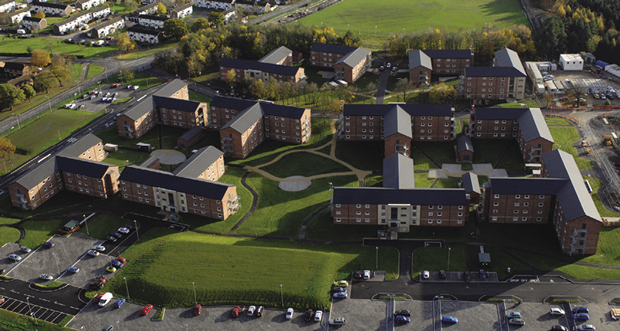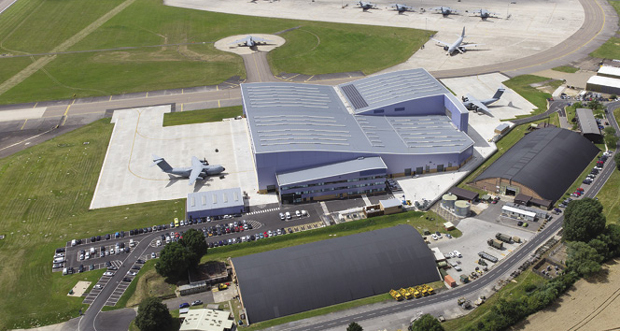This includes collaborative workshops within the delivery teams; and board level interviews with the suppliers around how they are going to create the environment for customer service, innovation and value for money. There is also some heavy weighting in the quality component of the bids, including provisos in the tender documents on how contractors would go about creating excellence.
“I think that excellence is something that should be in our DNA”, says Brewer. “We are pretty determined we are going to create a high-performance environment which is customer focused and mutually challenging. I expect there to be a conversation of equals between my teams and the suppliers about how we drive value for money and service.”
There are a number of areas that he believes are particularly important about the environment contractors are delivering into that will set them up for success. He believes strongly that people are at their best when working in environments where they doing something that they really believe in and feel passionately about.
“Within the DIO team there is a mixture of people who are current serving military, ex-serving military or civilians with long standing military connections, all deeply committed and who really believe in what they are doing.”
PANDEMIC READY
With the COVID-19 pandemic and subsequent lockdown taking place just as the tenders for the FDIS Accommodation services were going out, a review was carried out to check if the process could take place remotely. Online workshops with bidders were held to determine whether it was helpful or unhelpful continuing with the process during lockdown; recognising that this represents a major economic and employment opportunity.
Says Brewer: “We had open conversations and concluded we were still well placed to have a healthy competition. We made a few tweaks after recognising bidders might find it hard to get pricing from their supply chain so the timing was extended.
“So far, we’ve got one national accommodation contract and four regional ones, with all the bidders we expected to bid for the national one doing so, and regionally a strong representation in all areas.” With the latter, he explains: “We didn’t want organisations to bid for every region if in some areas of the country they weren’t set up to deliver a good service, so we asked ‘which areas are you most concentrated and suit you the best?’”
The DIO has also managed to maintain service largely as usual throughout the lockdown; from the repair and maintenance of military personnel’s houses to taking the necessary steps needed to ensure troop’s accommodation is made safe for occupation. It has also been involved in areas where the military has been deployed to help deal with the pandemic, including setting up the Nightingale hospitals, testing centres and mortuaries.
“We as service providers have had to support all of those areas while implementing changes to the way that we operate”, says Brewer, “and I’ve been delighted with the way both our hard and soft FM providers have worked with us over the last few weeks.”
FUTURE INNOVATION
Brewer admits that the DIO has not historically been at the forefront in taking advantage of the latest technologies, which is why the new contractual arrangements are geared towards creating a strong culture of innovation.
“Technology and innovation are a key part of the tender process,” he explains, “in order to help create a commercial platform where everybody involved in the process is driven to ensure continuous improvement throughout the life of the contract. To build all of the mechanisms that enable that, my team will play a different role from that of a client role of the past in being a catalyst for technological innovation.”
He adds: “One of the reasons for getting multiple providers involved was you get people who’ve been working on different developments who can bring that back into our delivery.”
FM services suppliers often comment that it’s difficult to innovate when faced with relatively short three to five-year contracts. The new DIO contracts are for an initial seven years, with the option of a further three-year extension to a 10-year relationship, offering much more scope for development,
Explains Brewer: “The idea is to get through the initial mobilisation phase, ensure that the systems and suppliers are up and running and quite quickly determine if [the contract] is working. Once it is established we will aim to commit to the full duration of the contract as quickly as possible. In this way we’ve created the contractual and behavioural mechanisms that allow us to develop strong partnership relationships.”
Brewers also believes that it’s not feasible to create prescriptive, inflexible contracts – as they would be out of date in six-month’s time and “like a dinosaur” in 10 years. He’s very clear that the new contracts will take a dynamic and evolving route and not end up delivering a static service. For this reason, transparency from the tender process, throughout the lifecycle of the contracts will be crucial.
“Like all big organisations I’m sure there are occasions where we don’t get it right and the messages don’t get through, but we’ve made a philosophical commitment to working in partnership and once you really believe in that and respect the unique skills that suppliers bring to the mix it’s in your best interest to be transparent”, he says.
“We want every organisation to put their best offer forward. Fundamentally that philosophical commitment to transparency and openness will be at the cornerstone of our success going forward.”






